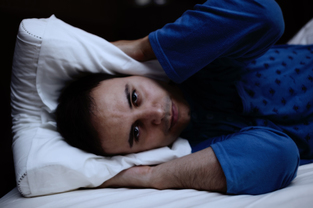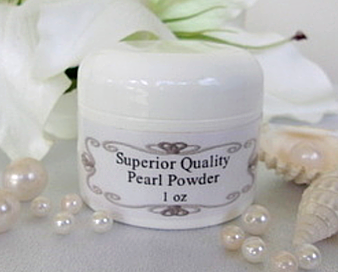|
Do you lie awake at night spending more time tossing and turning or staring at the ceiling than sleeping? You are not alone! Millions of other people are experiencing the same thing all across the world. They wake up in the middle of the night, can't fall back to sleep and rise before dawn.
Not getting enough sleep has a major impact on your skin, quality of life and your ability to perform well. It can lead to fatigue, concentration problems, mood problems, accidents and problems remembering things.
Sleep issues include having trouble falling asleep, waking up frequently, waking long before morning and not being able to go back to sleep and having poor quality of sleep that leaves you feeling tired in the morning.
According to the experts, problems sleeping can be caused by physical or mental illness, stress, medications or relationship problems. Most short term sleep problems are caused by stress. Unfortunately, when you can't sleep, you can develop feelings of anxiety about your lack of sleep which makes it even harder to sleep well.
But you don't have to succumb to sleepless nights. By addressing the underlying causes and making simple changes to your daily habits and sleep environment, you can put a stop to the frustration of insomnia and finally get a good night’s sleep.
Forms Of Insomnia
Insomnia comes in many forms, not just in the form of sleeplessness:
Difficulty falling asleep Having problems staying asleep after falling asleep. Waking up many times during the night. Waking up too early. Not feeling refreshed after waking up.
The Symptoms Of Insomnia
Insomnia can have a serious affect on a person's daily life style. Symptoms of insomnia can include all of the following:
Feeling sleepy during the day Having poor or slow judgment Inability to pay attention to detail Inability to remember things - even things that happened only minutes before. Easily irritated by minor things<
Types Of Insomnia
Transient Insomnia - a temporary effect that lasts just a few days. Short-Term Insomnia - lasts for between two to four weeks. Chronic Insomnia - lasts for a month or longer.
Causes Of Insomnia
There are many causes for insomnia. Below are some of the most common reasons people suffer from insomnia.
Anxiety, Stress and Depression Noise in the sleeping environment Extreme temperatures - too hot or too cold Medical problems or illness Changes in your surrounding environment Worrying about not being able to sleep Excessive napping during the day time Too much caffeine, nicotine, or alcohol before bedtime.
Tips For Getting A Good Night's Sleep
Following some of the helpful guidelines below can help you get a better night's sleep:
Set A Schedule: Go to bed at the same time every night and wake up at the same time every morning. This will help your body get used to a sleeping pattern. "Sleeping in" on the weekends can cause insomnia because it is interrupting the sleep cycle that your body is used to.
Get Some Exercise: Try to get 20 to 30 minutes of exercise no sooner than 6 hours before bedtime- any exercise just before bed may cause you not to sleep that well.
Avoid Caffeine and Alcohol. Avoid things that contain any caffeine such as coffee, soda pop, teas, and candy. The same goes for people that drink alcohol just before going to bed.
Avoid Drinking too many liquids. Waking up at night to go to the bathroom becomes a bigger problem as we age. By not drinking anything an hour before sleep and going to the bathroom several times as you get ready for bed, you can reduce the frequency you'll wake up to go during the night.
Do Something Relaxing Before Going To Bed - Doing something that relaxes you before bed is good such as a warm bath, reading a book, or watching your favorite TV show.
Take Pearl Powder. Pearl Powder is renown for its amazing health and beauty benefits, however one of the most well-known and sought-after health benefits of pearl powder is for its calming and relaxing properties. It has been used to relieve stress, soothe the nervous system, improve the emotional state of mind, and induce deeper sleep, and scientists may have discovered why.
Aside from the generally calming effects that calcium has in the body, it has been shown to elevate GABA levels in the brain and body. GABA is a calming neurotransmitter that is often deficient in people with anxiety and chronic stress. Researchers suspect that GABA may have a calming, relaxing effect on the nervous system, a anxiety or mood disorders. It has also been effective in treating attention deficit-hyperactivity disorder.
Many people have found pearl powder to be calming and stabilizing. This was, and still is, one of the main uses for the substance in Ayurvedic and Chinese medicine.
Identifying Habits That Cause Insomnia And Disrupt Sleep
While treating underlying physical and mental issues is a good first step, it may not be enough to cure your insomnia. You also need to look at your daily habits. Some of the things you’re doing to cope with insomnia may actually be making the problem worse.
For example, maybe you're using sleeping pills or alcohol to fall asleep, which disrupts sleep even more over the long-term. Or maybe you drink excessive amounts of coffee during the day, making it harder to fall asleep later.
Other daytime habits that can negatively impact your ability to sleep at night include having an irregular sleep schedule, napping, eating sugary foods or heavy meals too close to bedtime, and not getting enough exercise or exercising too late in the day.
Not only can poor daytime habits contribute to insomnia, but a poor night's sleep can make these habits harder to correct, creating a vicious cycle of unrefreshing sleep. Oftentimes, changing the habits that are reinforcing sleeplessness is enough to overcome the insomnia altogether. It may take a few days for your body to get used to the change, but once you do, you will sleep better.

Not Sleeping Well? There May Be a Medical Cause
Sometimes, insomnia only lasts a few days and goes away on its own, especially when the insomnia is tied to an obvious temporary cause, such as stress over an upcoming presentation, a painful breakup, or jet lag. Other times, insomnia is stubbornly persistent. Chronic insomnia is usually tied to an underlying mental or physical issue.
Anxiety, stress, and depression are some of the most common causes of chronic insomnia. Having difficulty sleeping can also make anxiety, stress, and depression symptoms worse.
Other common emotional and psychological causes include anger, worry, grief, bipolar disorder, and trauma. Treating these underlying problems is essential to resolving your insomnia.
Medical problems or illness. Many medical conditions and diseases can contribute to insomnia, including asthma, allergies, Parkinson's disease, hyperthyroidism, acid reflux, kidney disease, and cancer. Chronic pain is also a common cause of insomnia.
Medications. Many prescription drugs can interfere with sleep, including antidepressants, stimulants for ADHD, corticosteroids, thyroid hormone, high blood pressure medications, and some contraceptives. Common over-the-counter culprits include cold and flu medications that contain alcohol, pain relievers that contain caffeine (Midol, Excedrin), diuretics, and slimming pills.
Sleep disorders. Insomnia is itself a sleep disorder, but it can also be a symptom of other sleep disorders, including sleep apnea, restless legs syndrome, and circadian rhythm disturbances tied to jet lag or late-night shift work.
Challenge Your Worries And Thoughts That Fuel Insomnia
Challenge the negative attitudes about sleep and your insomnia problem that you've developed over time. The key is to recognize self-defeating thoughts and replace them with more realistic ones. There is always something good to think about, so change every bad thought and replace it with a good thought, a good memory, things that are lovely, peaceful, calming thoughts, something you enjoyed doing or would like to do.
Practice breathing exercises. Take a breath in, then breathe out slowly while saying or thinking the word, “Ahhh.” Take another breath and repeat.
Do a quiet, non-stimulating activity. If you've been awake for more than 20 minutes, get out of bed and do a quiet, non-stimulating activity, such as reading a book. Keep the lights dim and avoid screens so as not to cue your body that it's time to wake up.
Before you lie down, write 5 things that you're grateful for, make a to-do list for tomorrow, or if you're depressed write something to look forward to as a reason to get up the next morning.
Remember, learning how to stop worrying takes time and practice. You may find it helpful to jot down your own list, taking note of the negative thoughts that pop up and how you can dispute them. You may be surprised at how often these negative thoughts run through your head. Be patient and ask for support if you need it.
Do Not Over Sleep
Be sure to wake up and get out of bed at your normal time frame. Sleeping more hours than you are used to will throw off your sleep cycle and cause sleeping problems. It may cause you to not be tired at night and then go to bed later, thus resulting in sleeping in even later the next morning.
Create A Better Sleep Environment & Routine
Two powerful weapons in the fight against insomnia are a quiet, comfortable sleep environment and a relaxing bedtime routine. Both can make a big difference in improving the quality of your sleep.
Make sure your bedroom is quiet, dark, and cool. Noise, light, and a bedroom that's too hot or cold, or an uncomfortable mattress or pillow can all interfere with sleep. Try using a sound machine or earplugs to mask outside noise, an open window or fan to keep the room cool, and blackout curtains or an eye mask to block out light. Experiment with different levels of mattress firmness, foam toppers, and pillows that provide the support you need to sleep comfortably.
Stick to a regular sleep schedule. Support your biological clock by going to bed and getting up at the same time every day, including weekends. Get up at your usual time in the morning even if you're tired. This will help you get back in a regular sleep rhythm.
Turn off all screens at least an hour before bed. Electronic screens emit a blue light that disrupts your body's production of melatonin and combats sleepiness. So instead of watching TV or spending time on your phone, tablet, or computer, choose another relaxing activity, such as reading a book or listening to soft music.
Avoid stimulating activity and stressful situations before bedtime. This includes checking messages on social media, big discussions or arguments with your spouse or family, or catching up on work. Postpone these things until the morning.
Avoid naps. Napping during the day can make it more difficult to sleep at night. If you feel like you have to take a nap, limit it to 30 minutes before 3 p.m.
Control Your Room Temperature. Extreme cold or warmth can cause you to sleep poorly. Be sure to maintain a comfortable room temperature that won't aggravate you during the night. If you have a waterbed be sure to set the water temperature at a comfortable temperature as well.
"All Natural" Sedative That Helps Fight Insomnia
Did you know that Pearl Powder has Sedation and tranquilization properties? Scientific research discovered that pearl can increase positive "elevated mood" neurotransmitters, and thus reduce the level of stress, and promote a more peaceful, positive internal biochemistry, to promote deep sleep.
Pearl Powder is an adaptogen. Its dual-action activity works to stabilize and balance the body by providing energy throughout the day and promoting sleep and relaxation at night. Pearl has shown positive effects against insomnia. Pearl is "cold" in nature and its action against insomnia is through reducing excess "liver heat" which is another reason why Pearl helps to calm the mind and central nervous system.
Similar studies have been reported that when pearl powder is taken internally, relieves dizziness, headaches and irritability. Promoting deep sleep also enhances the restorative beauty processes that occur during the sleep period.
We all need deep sleep to keep us healthy and our skin beautiful. Let Pearl Powder be your all-natural sedative, that soothes you to sleep.
Simply put 1/4 tsp into milk, juice, water, smoothie etc. and drink! Sweet dreams.
Prayer
The best way for a good night's sleep and to reclaim your inner peace and rest is through prayer. Prayer is a powerful sleep inducer. Try it, it works.
When It Is Time To See A Doctor?
If your sleeping problem persists for more than one month without success, consult a physician to determine if there could be another underlying health issue contributing to the insomnia like acid reflux or sleep apnea. Provide the doctor with as much supporting information as possible. Your doctor will be able to give you advice for your particular needs.
Pearl Powder has astounding benefits that help fight insomnia. It is an all-natural sedative that promotes Deep Sleep.

Seawater 1.oz $22.95

|

Freshwater 1.oz $22.95

|
|